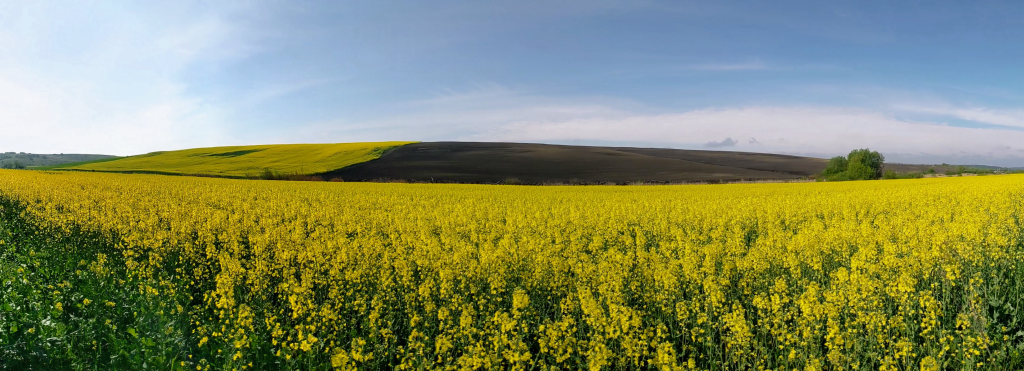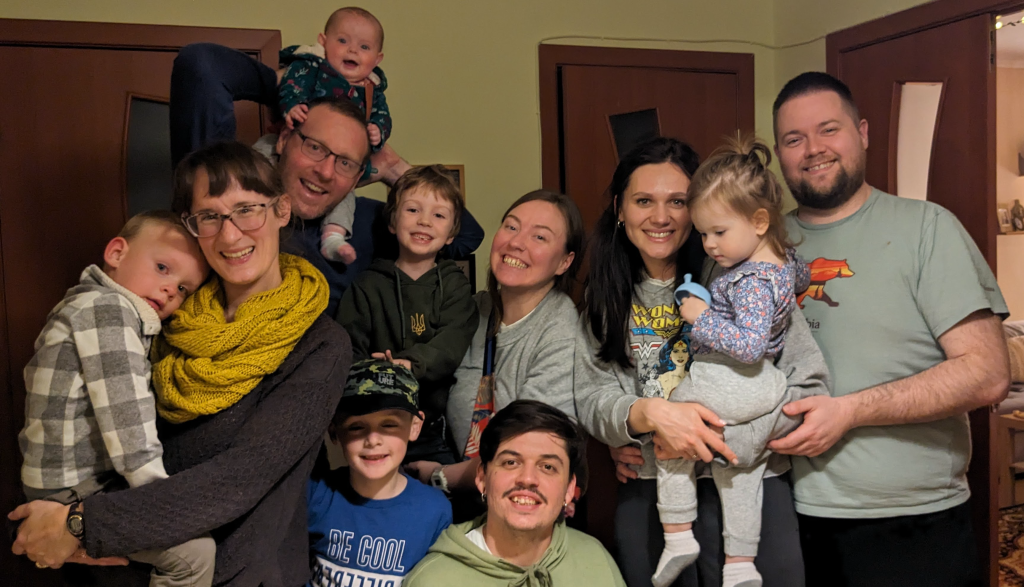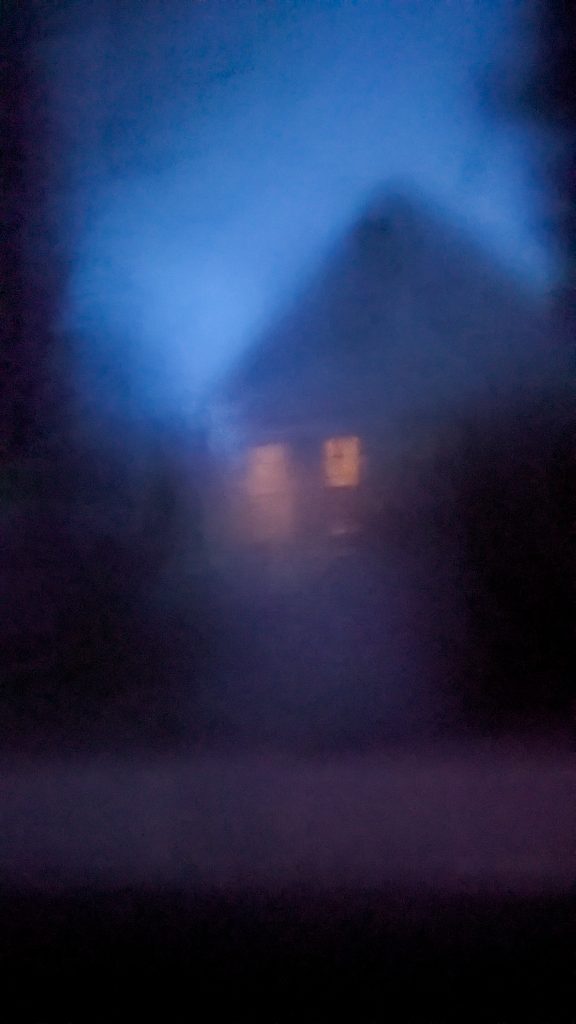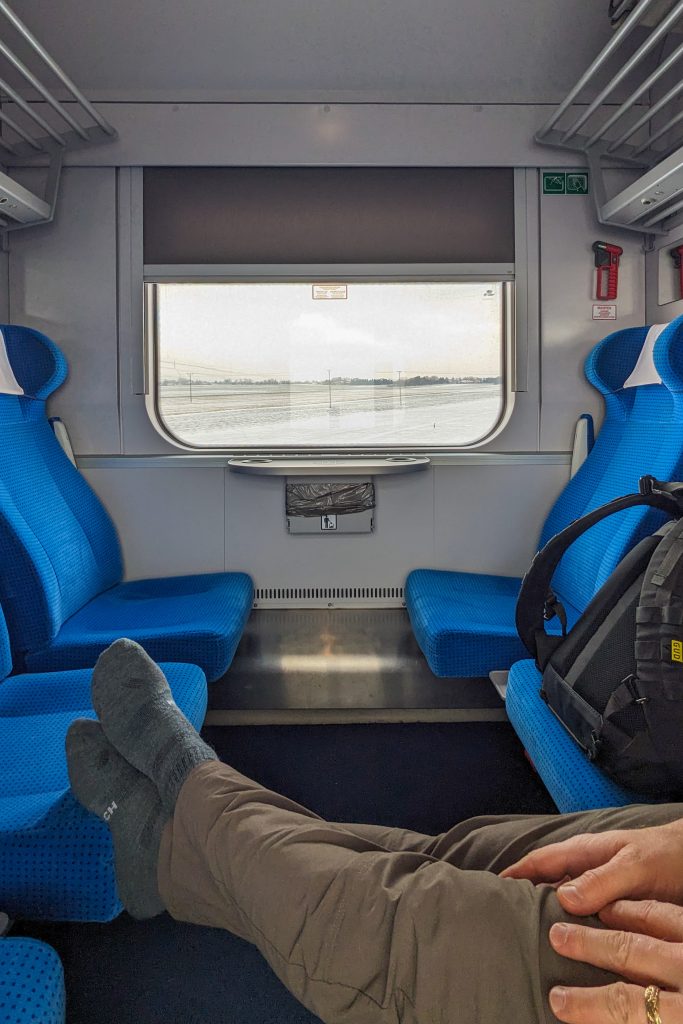Coming Back “To” Ukraine: The pain of language shift
Thoughts by Lance

As I start typing up this blog post. I receive another phone notification that Ukraine is under missile threat. For the next 3 minutes of my typing, my friends and coworkers will be hearing air raid sirens. Some are checking their phones to see where the missiles have been fired from, gathering what they can about the kind of missile or drone it might be as well as projected trajectories. They have done this so many times, they can calculate how many minutes it will likely take to reach where they are if it is coming their direction. This is now normal life in Ukraine. And the normalcy of this reality often makes me cringe. But another shift that I have been noticing is my language surrounding Ukraine and travel… And I don’t like it.
The last couple trips into Ukraine,… wow, I just did it… let me explain what I just did and restart this paragraph.
The last couple times I went to Ukraine, I started to realize that I have inadvertently adopted a language that I have never before used in context of travel to and from Ukraine. It was not an intentional shift nor have I seen it as a welcome one. And sadly, it was not just me using this language. Anyone going to Ukraine started unconsciously using it as well. We no longer say, we are going “to” Ukraine, we say we were going “into” Ukraine. What makes it even worse, now saying “I’m going to Ukraine” feels abnormal and insufficient. This may seem silly, but this frustrates me so much. So much so, I have been making a conscious effort to reinstate the proper preposition of “to” back into its rightful place.
Sure, we use into and to interchangeably very often to describe our going to some place. For instance, “Megan, I’m going into Irondale.” It is natural and it works. But there is a difference, and that is context. Irondale is not at war. There is not a distinct “being in” and “being out” of Irondale. Men in Irondale are not being stopped at the city limit and told they can go no farther. Irondale is under no threat of missile attack that will come indiscriminately at any time in any apart of the city. If it was a place of combat and danger, “into Irondale” would be a very different meaning. You would probably stop saying “to” and exclusively start saying “into.”

I very rarely before used “into” to describe my going to Ukraine. As I think about it now, when I would talk about travel, I would say I will arrive “in” or “to” Ukraine at such and such date, but rarely “into”. So, what has changed? The context Ukraine is in has changed. My relationship with the nation of Ukraine has had to shift. How I approach my going there and my staying in country has changed. It is so incredibly inconvenient to get there now. The freedom of my movement and my friend’s movements have been hampered inside and outside. Before the war and after war started is strikingly different.
But what has not changed? My relationships there. My love for Ternopil. My love for the Ukrainian people that have changed me so much for the better. When I am here or there, relationally I am still in. We have never been out even when we have been here in the states. For me, to say “to” is relational openness. In the context of nations, it rings of freedom. Just like when my kids say, “we want to go to Grammie and Grandpa’s” or “I am going to Europe.”

“Into” compartmentalizes Ukraine into a mere conflict zone. A scary place that we must go “into” and “out of.” It shortcuts our brain to make Ukraine an unsafe place that should be avoided. I know it is a small shift in language that may not mean very much to most people. But it means a lot to me. Ukraine is not just a nation for me. It is where I learned how to be a friend. It is where some of my deepest sense of purpose and community was fashioned. It is where Megan and I met and grew up as a couple. It is worth changing my language for.
So, I am choosing to combat this language of separateness, of distance and of isolation. I will again, for my friend’s sake, do a small honor and say, “I will be coming to Ukraine as soon as I can.” My language will reflect my heart’s stance to this wonderful country. And here in the states, I will unashamedly say, again and again, I still love going to Ukraine. Missiles, drones and hatred may be coming into Ukraine, but I will always be coming to Ukraine.




